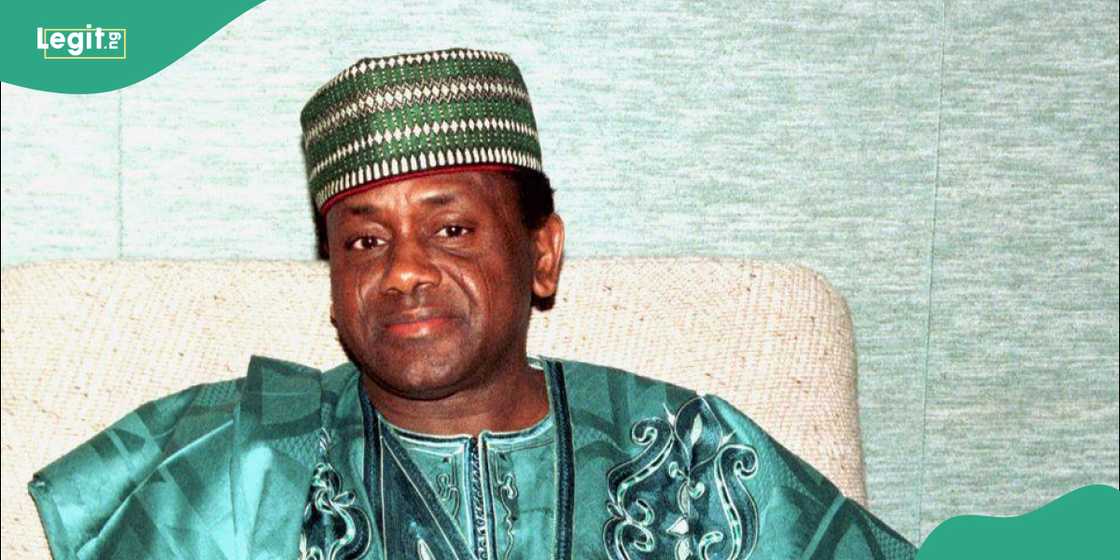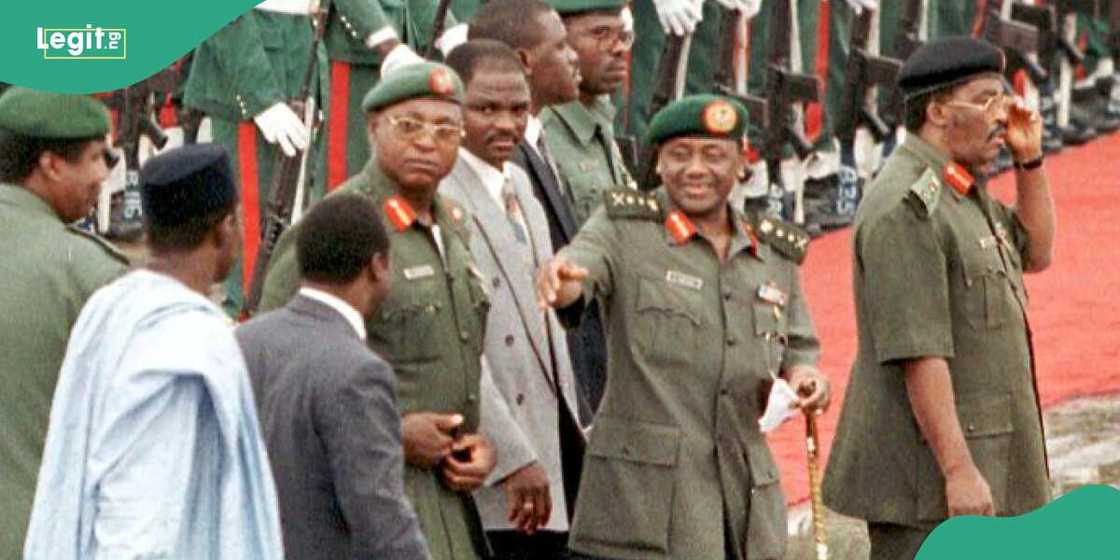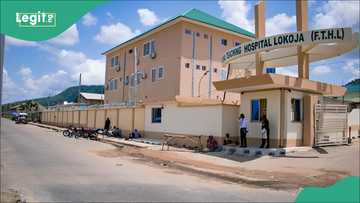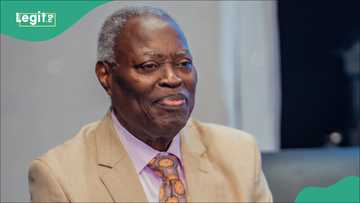History of the Mysterious Circumstances Surrounding Death of Sani Abacha
- A former Nigerian head of state, General Sani Abacha, died suddenly on June 8, 1998, ending one of the country's most repressive military regimes
- His rule was marked by authoritarianism, human rights violations, and the infamous execution of Ken Saro-Wiwa and others
- Even 27 years later, Abacha’s legacy remains controversial, with his family still facing public resentment and scrutiny
On June 8, 1998, Nigeria woke up to news that sent shockwaves through the country: General Sani Abacha, Nigeria’s military head of state, had died, suddenly.
His death, as unexpected as it was shrouded in mystery, brought an abrupt end to one of the most repressive and controversial regimes in the nation’s history.

Source: Getty Images
According to a 1998 account by TELL magazine republished by Archivi.ng, the final day of Abacha’s life - Sunday, June 7 - played out like any other.
That night, after his wife and children retired to bed, Abacha reportedly made his way to a guesthouse near the Presidential Villa.
“At about 2 a.m., when his wife and family had gone to bed, Abacha headed for his dangerous rendezvous with fate, and as it turned out, in one of the guest houses just nearby the Villa."
How Abacha died after encounter with prostitute
According to TELL magazine, after Abacha's family had gone to bed, he made his way to a nearby guest house within the Presidential Villa complex. There, he was joined by Lieutenant General Jerry Useni, who brought along two Indian prostitutes—one of whom was 27 years old.
Inside the luxuriously furnished guest house, the four settled in with drinks and refreshments. After a period of mingling, the group split up into pairs: Useni with one woman, and Abacha with the younger companion. According to the account, the Indian woman was sent upstairs to prepare for the dictator, while Abacha followed shortly after.

Source: Getty Images
Abacha was climbing the stairs when he suddenly stumbled. He clutched his chest and collapsed. His companion screamed, which brought in the security aides and stewards, who rushed to the scene.
The general was found gasping, his breath shallow and laboured. Frantic attempts were expended to revive him, including raising him on the sofa and trying CPR on him, he responded.
He requested a bottle of water, which reportedly fell from his hand as his condition rapidly worsened. On the table inside the guest house were remnants of the fruits the military leader had eaten moments prior.
Presidential physicians were summoned to resuscitate the dying ruler, but despite the availability of state-of-the-art medical equipment worth millions of dollars, the most important person in the country would not survive.
At the time of his death, Major Hamza Al-Mustapha, his chief security officer, was reportedly not present but was awakened around 5 a.m. with the grim news.
Abacha's death greeted with mixed reactions
His sudden passing triggered mixed reactions across Nigeria. For some, it marked the end of a brutal era defined by military rule, human rights abuses, and widespread corruption.
For others, especially his loyalists, it was a time of confusion and loss. What remained undisputed was that his death dramatically altered the course of Nigeria’s political future.

Read also
Man slumps after wife his wife gave birth to triplets in Kogi, “This blessing is huge, so is the burden”
Abacha's rise to power
Abacha’s rise to power came through a bloodless coup in November 1993, when he seized control from the transitional government of Chief Ernest Shonekan.
Once in power, he dissolved democratic institutions, arrested opposition figures, and cracked down on civil liberties. His regime became infamous for its heavy-handed tactics, including the execution of activist Ken Saro-Wiwa and the Ogoni Nine, which drew global condemnation and led to Nigeria’s suspension from the Commonwealth.
The Abacha years were also marked by a culture of secrecy, fear, and state-sponsored violence. His government was accused of organizing assassinations, detaining journalists, and suppressing dissent. Despite this, he maintained a tight grip on power until his death at age 54.
Even decades later, the impact of his regime still lingers.
“Indeed, for the Abacha clan, things would never be the same again. The late dictator's children can hardly move about freely today for fear of being lynched by irate Nigerians,” TELL reported in 1998.
While some remember him for efforts to stabilise the economy and keep Nigeria united, his legacy is mostly remembered for autocracy, looted public funds, and an era that cast a long shadow over Nigeria’s path to democracy.
Abacha: Last successful military takeover in Nigeria
Earlier, Legit.ng chronicled that thirty-one years ago, Nigeria witnessed a unexpected shift in its political landscape.
The winds of change swept through the corridors of power as General Sani Abacha executed a meticulously planned coup, toppling Chief Ernest Shonekan's National Interim Government.
What began as a transitional administration, birthed in the tumultuous aftermath of the Third Republic crisis, ended quickly as Abacha seized the reins of power.
Source: Legit.ng




